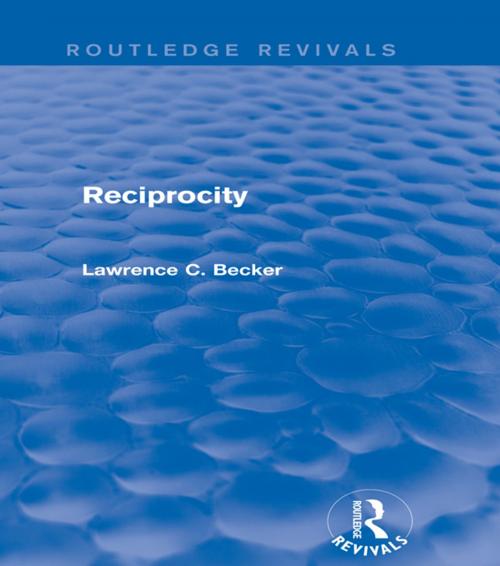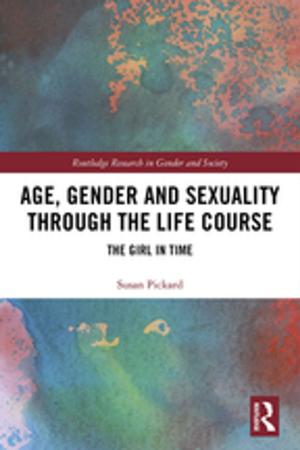Reciprocity (Routledge Revivals)
Nonfiction, Religion & Spirituality, Philosophy, Ethics & Moral Philosophy| Author: | Lawrence C. Becker | ISBN: | 9781317703327 |
| Publisher: | Taylor and Francis | Publication: | June 17, 2014 |
| Imprint: | Routledge | Language: | English |
| Author: | Lawrence C. Becker |
| ISBN: | 9781317703327 |
| Publisher: | Taylor and Francis |
| Publication: | June 17, 2014 |
| Imprint: | Routledge |
| Language: | English |
The tendency to reciprocate – to return good for good and evil for evil – is a potent force in human life, and the concept of reciprocity is closely connected to fundamental notions of ‘justice’, ‘obligation’ or ‘duty’, ‘gratitude’ and ‘equality’.
In Reciprocity, first published in 1986,Lawrence Becker presents a sustained argument about reciprocity, beginning with the strategy for developing a moral theory of the virtues. He considers the concept of reciprocity in detail, contending that it is a basic virtue that provides the basis for parental authority, obligations to future generations, and obedience to law. Throughout the first two parts of the book, Becker intersperses short pieces of his own narrative fiction to enrich reflection on the philosophical arguments. The final part is devoted to extensive bibliographical essays, ranging over anthropology, psychology, political theory and law, as well as the relevant ethics and political philosophy.
The tendency to reciprocate – to return good for good and evil for evil – is a potent force in human life, and the concept of reciprocity is closely connected to fundamental notions of ‘justice’, ‘obligation’ or ‘duty’, ‘gratitude’ and ‘equality’.
In Reciprocity, first published in 1986,Lawrence Becker presents a sustained argument about reciprocity, beginning with the strategy for developing a moral theory of the virtues. He considers the concept of reciprocity in detail, contending that it is a basic virtue that provides the basis for parental authority, obligations to future generations, and obedience to law. Throughout the first two parts of the book, Becker intersperses short pieces of his own narrative fiction to enrich reflection on the philosophical arguments. The final part is devoted to extensive bibliographical essays, ranging over anthropology, psychology, political theory and law, as well as the relevant ethics and political philosophy.















